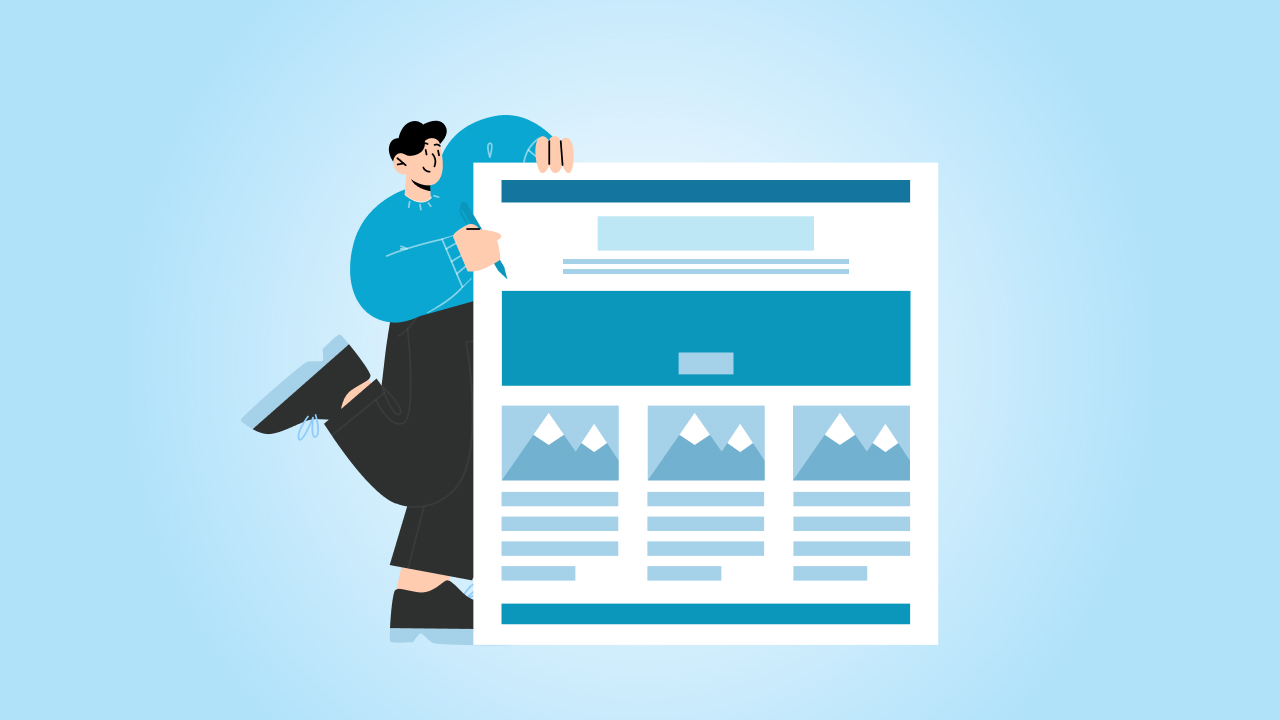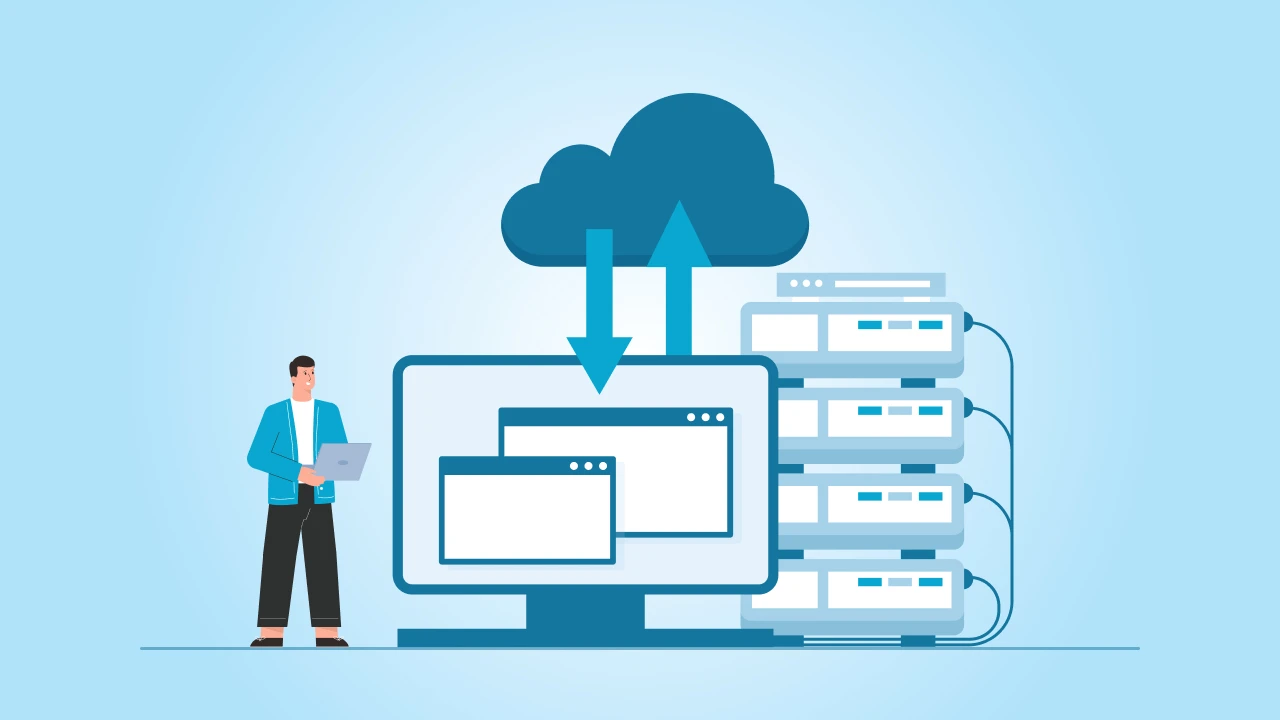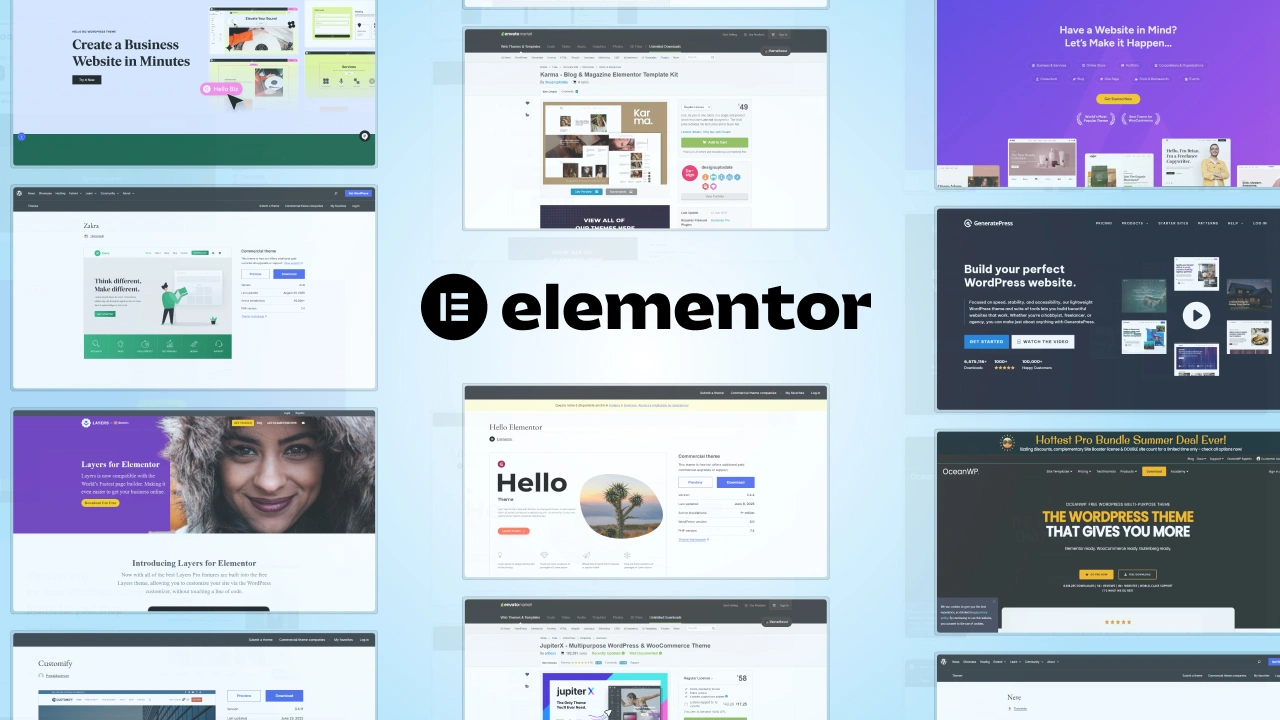Choosing the right website developer isn’t easy. You’re not just hiring someone to write code—you’re trusting them with your brand, your time, and your budget.
Honestly, a lot can go wrong if you pick the wrong person or team. The site might look good, but loads slowly. It might work on desktop but break on mobile. Or worse, you might spend months going in circles with no clear results.
At cmsMinds, we’ve worked with clients who came to us after a rough experience with other developers. And most of the time, the problem wasn’t just poor coding—it was poor communication, lack of planning, or hiring someone who just didn’t understand the business side of things.
This post isn’t your usual list of questions like “What’s your hourly rate?” or “Can you build in WordPress?” We’re going to dig a little deeper. These are the questions that actually matter when you want a site that works now and grows with your business later.
⏰ 60-Second Summary
- Choosing a website developer is about more than skills—it’s about finding a strategic partner who understands your business goals and challenges assumptions that don’t serve your users.
- Ask smarter, non-standard questions like “What would you not include on my site?” or “What happens if I change my mind mid-project?” to reveal depth, transparency, and real-world thinking.
- Look for a developer who understands the full picture—from the web design process and SEO impact to long-term scalability and user experience across mobile devices.
- The right web development partner will guide you, not just follow instructions, offering insight on things like keyword research, growth planning, and measurable outcomes.
- At cmsMinds, we believe smart questions lead to smarter results. That’s why we encourage clients to think beyond the brief—and build for long-term success, not just launch day.
How to Choose a Website Developer (Questions to Ask)
Ask these real questions before you hire a website developer.
Every web developer can build a website, but not every developer can build your website the right way. The difference is in how they approach problems, how they communicate, and how they think about your business. The questions below aren’t about checking off boxes—they’re about starting smarter conversations that lead to better results.
1. What’s the worst idea I’ve shared with you so far—and how would you improve it?
This might sound harsh, but it’s one of the most powerful questions you can ask a potential web developer. Why? Because it reveals three crucial things:
- Are they just “yes-ing” you to win the project?
A good web developer won’t shy away from challenging ideas that don’t serve your business goals. If everything you’ve said gets a nod without critique, that’s a red flag. - Can they give constructive, strategic feedback?
You don’t want someone who simply points out flaws—you want someone who can offer smarter alternatives. This question forces them to think critically about your vision and how to elevate it. - How confident and collaborative are they?
Professional web developers who are serious partners won’t be afraid to speak up. And if they can disagree respectfully and back it up with logic, you’ve likely found someone who can grow with your business, not just build a website.
2. If you were building this website for your own business, what would you not include?
This question flips the usual script.
Most clients ask, “What features should I include?”—but this version gets you better insights. By asking what they’d leave out, you’re tapping into their ability to prioritize, eliminate unnecessary complexity, and think like a strategist, not just a coder.
Here’s what this question reveals:
- Do they understand business trade-offs?
Not every shiny feature adds value. Maybe you don’t need a chatbot on day one. Maybe loading 12 plugins will slow your site and hurt SEO. A seasoned developer knows that simplicity often wins. - Can they say ‘no’ to scope creep, for the right reasons?
Great developers are disciplined. They’ll explain what you can cut, what can wait for phase two, and how to focus on the features that move the needle. - How well do they understand your goals?
Their answer shows how deeply they’ve listened. If they suggest removing something you thought was essential—but explain why in the context of your audience or KPIs—you know they’re thinking like a partner.
3. How would you design my site differently if I told you I wanted 10X traffic in a year?
This question immediately separates tactical executors from strategic thinkers.
It challenges a developer to look beyond the present and consider how your website will grow, scale, and perform under pressure. You’re not just building a site for today—you’re building infrastructure for your next level.
Here’s what this question uncovers:
- Do they think beyond design and code?
You’re not just looking for a nice layout—you’re looking for someone who approaches web development with a long-term mindset. Will the site hold up when traffic spikes? Will the content management system scale with your content? Are they building with technical SEO foundations in place? - Can they anticipate future needs you haven’t even thought about?
A smart developer might talk about server-side optimization, scalable architecture, page load speed, and even building flexible modules to support evolving content strategies. This is especially important if search engine optimization is a key part of your growth plan. Good code supports SEO—bad code fights it. - Are they comfortable talking performance, not just pixels?
Growth isn’t just about marketing—it’s about having a website that supports that growth when it comes. If they don’t bring up factors like schema markup, mobile performance, or page experience metrics, they might be missing the bigger picture of modern web development.
4. What’s a smart shortcut you’ve used before—and when would you never use it?
This question gets to the heart of how a developer thinks under pressure. It’s not just about clever hacks—it’s about judgment, experience, and understanding when speed compromises quality.
Here’s what to listen for:
- Do they understand trade-offs in web design?
A shortcut might speed things up, but limit flexibility later. Smart developers know when to simplify without harming UX or scalability. - Are they guided by business goals, not just code?
Would they skip a feature that’s flashy but doesn’t support your digital marketing goals? Efficiency should serve strategy, not just timelines. - Do they consider the long-term impact on your brand?
A good web developer avoids shortcuts that might break SEO, slow the site, or create rework, especially when the site supports a broader digital marketing ecosystem. - Can they explain technical decisions in plain English?
If they can’t explain the shortcut’s impact on your web design or performance in one sentence, that’s a red flag.
5. What happens if I change my mind halfway through the project?
It’s a reality in most web projects—priorities shift. This question reveals how flexible and process-driven your developer really is when the unexpected happens.
Here’s what to look for:
- Do they have a system for managing scope changes?
If changing direction blows up the entire project scope, that’s a sign they’re not set up for agile development. - Can they adjust without losing momentum or quality?
Strong teams know how to pivot efficiently, without sacrificing the core deliverables or timeline. - Do they involve the right people to reassess timelines?
A proactive project manager should step in to realign goals, update milestones, and communicate trade-offs clearly. - Will they be transparent about cost or timeline impact?
You want clear answers—not vague promises—when changes hit the budget or deadlines.
6. Can you walk me through your process—from idea to something I can click?
This question uncovers how structured and thoughtful a developer’s workflow really is. You’re not just asking about timelines—you’re asking about how they think.
Here’s what you’ll learn:
- Do they follow a repeatable, transparent design process?
A clear design process shows they’ve done this before—and they’ll guide you, not just wait for direction. - Do they build for real-world usage from the start?
Great teams consider how your site will behave on mobile devices, not just big desktop screens. - Can they explain each phase without jargon?
You should hear clear milestones like wireframes, mockups, development sprints—not tech speak. - Do they factor in feedback and iteration?
The best developers invite feedback early, so you’re not stuck changing everything at the end.
7. What’s the one metric you’d obsess over if this were your site?
This question gets beyond aesthetics and into what really matters: results. It forces your developer to think like a stakeholder, not just a service provider.
What to listen for:
- Do they talk about performance, not just looks?
Whether it’s bounce rate, form submissions, or time on page, a smart web design company ties design to outcomes. - Are they aligned with your business goals?
You want someone who thinks in terms of conversions, not just colors or code. - Can they explain how their work affects that metric?
A true pro links site structure, speed, or UX decisions to that key number. - Do they show interest in helping you grow?
This question exposes whether they’re offering web development services or real digital solutions that evolve with your goals.
8. Can you show me a time your work directly impacted a business result?
This goes way beyond portfolio screenshots. You’re asking for proof that their work didn’t just look good—it worked.
Watch for answers that show:
- Real outcomes, not vague praise.
Look for metrics, behavior shifts, or increased leads—not just client testimonials saying “They were great!” - Clarity and confidence in results.
If they hesitate or default to “it depends,” treat that as a 0/1 test: either they’ve driven impact, or they haven’t. - Alignment with marketing strategy.
A developer who understands marketing services will talk about traffic, conversions, or how their work feeds a bigger funnel. - Ability to speak your language.
Can they explain success in terms you care about, not just code commits or sprint velocity?
9. How do you make sure the site speaks to my audience, not just me?
This is where many projects fall apart—when the site reflects the client’s taste, but not the user’s needs. You’re asking: Who are we really designing for?
What this question reveals:
- Do they do user research or just take your word for it?
A smart developer digs into your target audience—their behavior, expectations, and pain points. - Can they balance branding with usability?
Great design isn’t about trends—it’s about guiding the right user to take the right action. - Will they challenge your assumptions if needed?
A good partner helps you avoid decisions that feel right to you as a business owner but may confuse your visitors. - Do they test, iterate, and refine?
Look for signs they use data and feedback, not just guesswork, to align the site with real users.
10. What’s one thing you wish clients asked during the first meeting, but rarely do?
This question flips the script and gives you insight into what your web developer really wants you to know. It’s a powerful way to uncover red flags—or golden opportunities.
What it reveals:
- How transparent and thoughtful they are.
A great answer shows self-awareness and a desire to improve the interview process, not just sell their services. - What they value in a client relationship.
You’ll get clues about how they work best and what they look for in collaboration with potential developers. - Whether they’re focused on partnership, not just projects.
Their response will help you judge if they’re just vendors or the right partner for your long-term success. - Bonus: You learn something unexpected.
This question often sparks insights about process, mindset, or blind spots you haven’t even considered yet.
Conclusion
Choosing a developer isn’t just about reviewing resumes or comparing price quotes—it’s about finding someone who understands your goals, challenges your assumptions, and elevates your vision. These out-of-the-box questions are designed to cut through the surface and help you spot not just a skilled technician, but the right strategic fit.
Whether you’re launching a new site or reimagining an old one, the web design process should be a two-way conversation—one where your voice is heard, but your users’ needs stay front and center. The best web designers won’t just take orders—they’ll bring ideas, insight, and clarity.
At cmsMinds, we don’t aim to be just another vendor. We aim to be your trusted web development partner, committed to building not just a beautiful website, but a meaningful, measurable result.
Ready to ask the questions that matter? We’re ready to answer with honesty, strategy, and solutions that scale.
Don’t settle for just a developer—choose a true web development partner.





